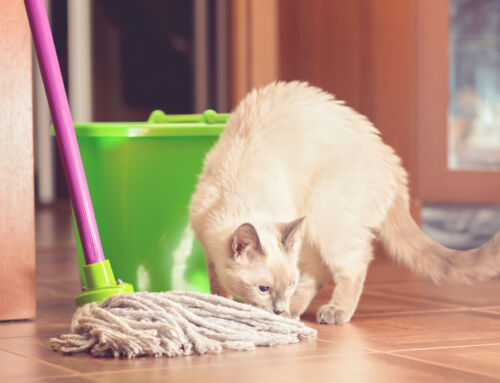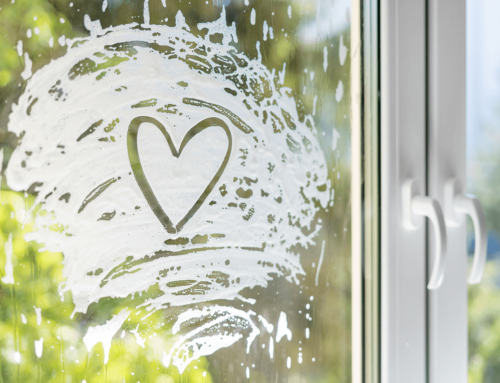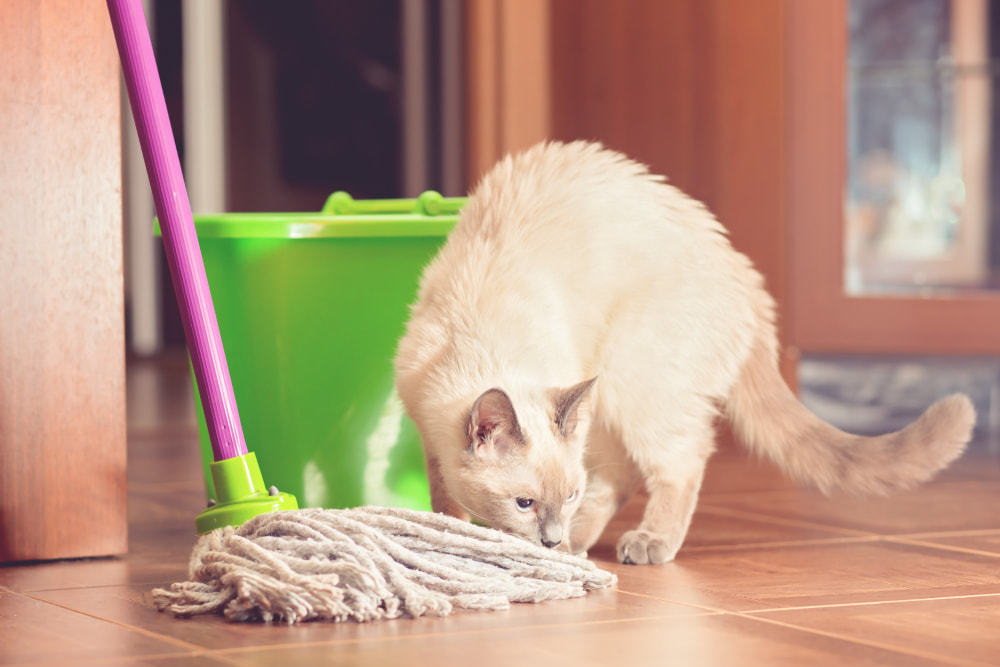
How Often Should I Clean That?
The friendly people at Castle Keepers House Cleaning get questions from time to time from our clients, neighbors, and other cleaning professionals about how often certain items in a home should be cleaned. Whether you are interested in corporate house cleaning in Atlanta, GA, or apartment deep cleaning service in Portland, OR here are some examples of areas that should be cleaned on a regular basis. You can also download our infographic “How Often Should I Clean That?”
How often should I clean my Bedsheets?
Answer: Once a week
Use warm water rather than hot, which can shrink fibers, and washes printed and colored pillowcases inside out to protect the color. Tumble-dry sheets according to label instructions.
Sheets help keep mattress pads, bedspreads, and blankets clean, but they can’t protect against everything. Body oil and perspiration are absorbed by the sheets, and the mattress pad and blankets can eventually get soiled. Over the years so does the mattress. The more frequently you wash the sheets, the better you keep all the layers clean, and the longer the mattress stays clean.
Traditionally sheets are washed once a week and this should be considered a minimum. If you or your partner perspire heavily or if you spend additional time in bed due to ill-health, twice a week or more often should be the rule. If you make extra use of your bed for any reason – you like to work there on your laptop, or you read, watch television, or snack there – you may need to change your sheets more often than once a week.s.
Related post: How to Fold a Fitted Sheet
How often should I clean my ceiling fan?
Answer: Once a week
For an easy wipe-down, stand on a step stool and slide an old pillowcase over a blade. Pressing both hands against it, slowly slide the case off. Repeat for each blade, then throw the case in with your laundry.
If your ceiling fan is too high to clean by hand, spread a sheet or towel under the ceiling fan to protect anything under it like bedding or upholstered furniture, and use a duster on an extension pole to remove dust.
How often should I clean my toilet bowl?
Answer: Once a week
Pour 1/2 cup white vinegar or 1/4 cup chlorine bleach (never mix the two) into the bowl; let sit for several minutes. Brush the entire interior with a toilet brush, then flush. If the toilet has a hard-water ring, let the vinegar or bleach sit for an hour before brushing clean.
Toilets are made of vitreous china, which is both tough and non-porous. You should clean the outside of the toilet bowl the same way you clean showers and sinks, with a disinfectant cleaner. Toilet bowl cleaners of all sorts are safe for vitreous toilet bowls. When using toilet bowl cleaners, always read the directions and be careful to avoid splashing them, as they often contain harsh chemicals that can be dangerous to your skin and eyes, and surrounding surfaces. For this reason, always wear glasses and gloves when cleaning toilets.
Some people like to empty the bowl of most of the water before cleaning so the cleaner can work on the areas of the bowl that are normally covered with water. To do this, use a plunger or pour half a bucket of water into the bowl. After scrubbing the bowl, rinse by flushing.
How often should I clean my pillows?
Answer: Every 3 to 6 months
Most pillows can go in the washing machine. They should be laundered seasonally to remove bacteria, mold, and odors. Pillowcases should go in the laundry every week, and protectors once a month, or more often if you or a loved one has allergies.
Pillows get even dirtier than other parts of the bedding. Think about it – your eyes tear on the pillowcase; your mouth drools on it; your face, which is sweatier and oilier than the rest of you, rubs against it; your hair, which collects dirt and produces oil all day, also rubs against it. And your nose is pushed against it all night long. It is a good practice to make sure you wash your pillow and all its cases and covers frequently.
How often should I clean my computer and electronics?
Answer: Once a week
Compressed air in a can is a secret weapon for removing grime and debris. Never use abrasive cleansers or harsh cleaning sprays. Unplug before cleaning.
Computer screens attract dust and fingerprints. Wipe off dust with a clean cloth or tissue; fingerprints can be wiped off with a slightly damp cloth, but be sure to shut the screen off first. Special microfiber cloths for cleaning electronics are also sold.
Computer keyboards accumulate visible grime and, hidden beneath the keys, surprising accumulations of dust, crumbs, and unidentifiable minuscule objects. Since the keyboard is a miniature computer in itself, it pays to be gentle. Use a cloth very slightly dampened with rubbing alcohol to get oily fingerprints off the keys, and use a soft paintbrush or gentle bursts of compressed air to get the detritus out from under the keys.
How often should I clean my drains?
Answer: Once a week and once a month
Once a week, flush the drain with boiling water. Then monthly, flush drain with a cleaning mixture of vinegar, boiling water, and baking soda. This helps break down the accumulation of debris and deodorize the pipework of odors at once. Enzyme drain cleaners are also available and will not harm your pipes. They are slowly working but can be beneficial against odors if used on a regular basis.
How often should I clean my fireplace?
Answer: Once a year
It’s essential to hire a chimney sweep annually. Spring — after the winter season has ended — is an ideal time to prepare it for the coming year.
The floor and walls near a fireplace often become stained with soot and smoke that build up over time. To clean, first vacuum off all loose soot and ash, then rub as much soot as you can with a dry brush, sponge, or cloth. When the exterior is as clean as you can make it by this method, wash the surface as recommended by the type of surface it is – marble, stone, cement, tile, etc. Either a solution of an all-purpose cleaner or a special cleaner designed for soot and smoke is recommended. Tri-sodium phosphate (TSP), ammonia, or other alkaline cleaner mixed with water and applied with a good, stiff brush will also work.
If your fireplace has glass doors, clean them according to the manufacturer’s instructions or with a regular glass cleaner.
Most people use a grate or andirons to hold the logs, a hearth brush or broom, a fire screen, and a poker, tongs, and a shovel for building and tending their fires. These tools are usually made of cast iron, wrought iron, or brass. To wash them, remove all loose matter with a dry brush, sponge or cloth, then wash with an all-purpose cleaner. Use a little paste wax on such accessories for a pleasant shone and rust resistance.
How often should I clean my window treatments?
Answer: Once a month
Vacuum window treatments like curtains and screens. Read care labels on curtains and draperies carefully. Many curtains and draperies are not washable, whether because they are made of a non-launderable fabric such as silk velvet because they have a non-launderable trim, or for some other reason. In this case, they are probably dry-cleanable. Even when curtains and draperies are washable, it is best to wash them on a gentle cycle, for several reasons. First, the type of dirt they are likely to collect is usually easy to get out with gentle washing. Second, they are constantly exposed to light, which causes deterioration of the fabric. Laundering can tear or fray them when they have been weakened by light. Third, they are often made of loose weaves like lace, which prefer gentle treatment. Choose cold water to avoid shrinkage with fibers that may shrink. Tumble dry on low if shrinkage is a problem, or line dry if you wish to avoid any heat.
The dirt that collects on screens can get washed onto the window glass in rainstorms, and dirty screens block more light than clean ones do. Vacuum window screens from the inside when they look dusty. Once a year, take your screens into the yard and squirt them down with a hose, then let them dry in the sun. Window washing services will also wash your screens for you.
Regular care of all blinds, shades, and shutters is the same: dust them with a soft, clean cloth or vacuum them each week with a dusting attachment. If blinds are very dirty, remove and lay them flat on a drop cloth outside. Scrub closed blinds with a soft brush and warm soapy water. Repeat on the other side; rinse. Open and hang outside to dry.
You cannot wash shades made of paper, rice paper, or parchment. You can gently dust them, or experiment with vacuuming on a low setting. Be cautious. Remove spots as you would with non-washable wallpaper; after a thorough dusting or vacuuming, try rubbing them gently with commercial cleaning putty or artist’s gum eraser, or use a commercial spot removing substance advertised as safe for the material your shade is made of.
Never use harsh cleaners or ammonia on aluminum blinds, as they may damage the finish.
How often should I clean my lighting fixtures?
Answer: Once a week
Dusting light fixtures and bulbs can brighten up your rooms. Use a slightly damp cloth to remove dust from light fixtures. Make sure the light is turned off and gently wipe away dust on the light bulb with an inexpensive paintbrush.
Source: marthastewart.com
About Castle Keepers House Cleaning
 Castle Keepers House Cleaning has been at the forefront of innovation and leadership among house cleaning professionals for years. Our company pioneered environmentally friendly and sustainable cleaning methods in residential cleaning. Castle Keepers House Cleaning is independently owned, not a franchise, with branches in Atlanta, GA, Charleston, SC, Greenville, SC. To schedule your cleaning service, contact us today at 888-302-5582 or Request a FREE Estimate online!
Castle Keepers House Cleaning has been at the forefront of innovation and leadership among house cleaning professionals for years. Our company pioneered environmentally friendly and sustainable cleaning methods in residential cleaning. Castle Keepers House Cleaning is independently owned, not a franchise, with branches in Atlanta, GA, Charleston, SC, Greenville, SC. To schedule your cleaning service, contact us today at 888-302-5582 or Request a FREE Estimate online!
[caldera_form_modal id=”CF5c1a57687975a” type=”button” width=”500″]Click For Estimate[/caldera_form_modal]
Share this article
A quick overview of the topics covered in this article.
- How often should I clean my Bedsheets?
- How often should I clean my ceiling fan?
- How often should I clean my toilet bowl?
- How often should I clean my pillows?
- How often should I clean my computer and electronics?
- How often should I clean my drains?
- How often should I clean my fireplace?
- How often should I clean my window treatments?
- How often should I clean my lighting fixtures?












